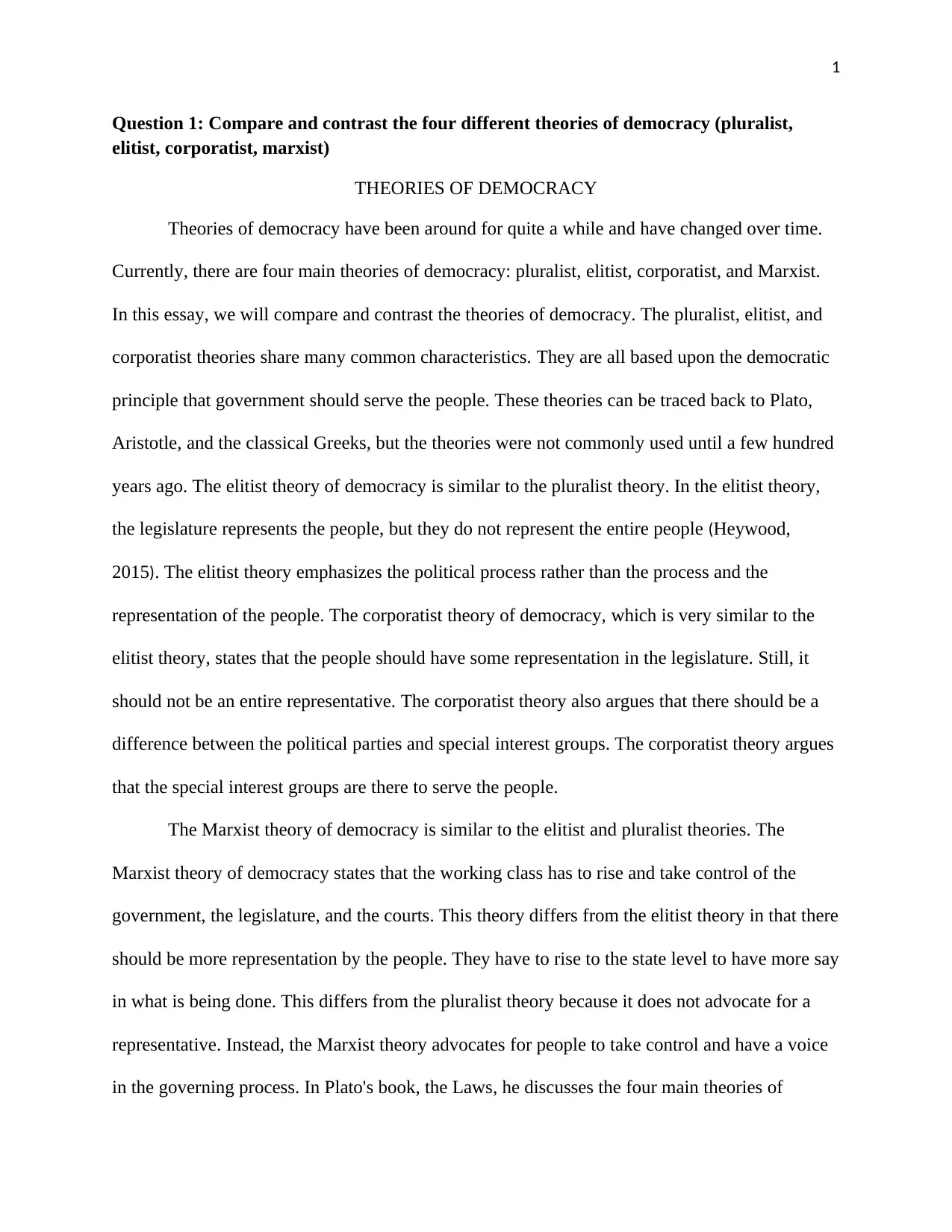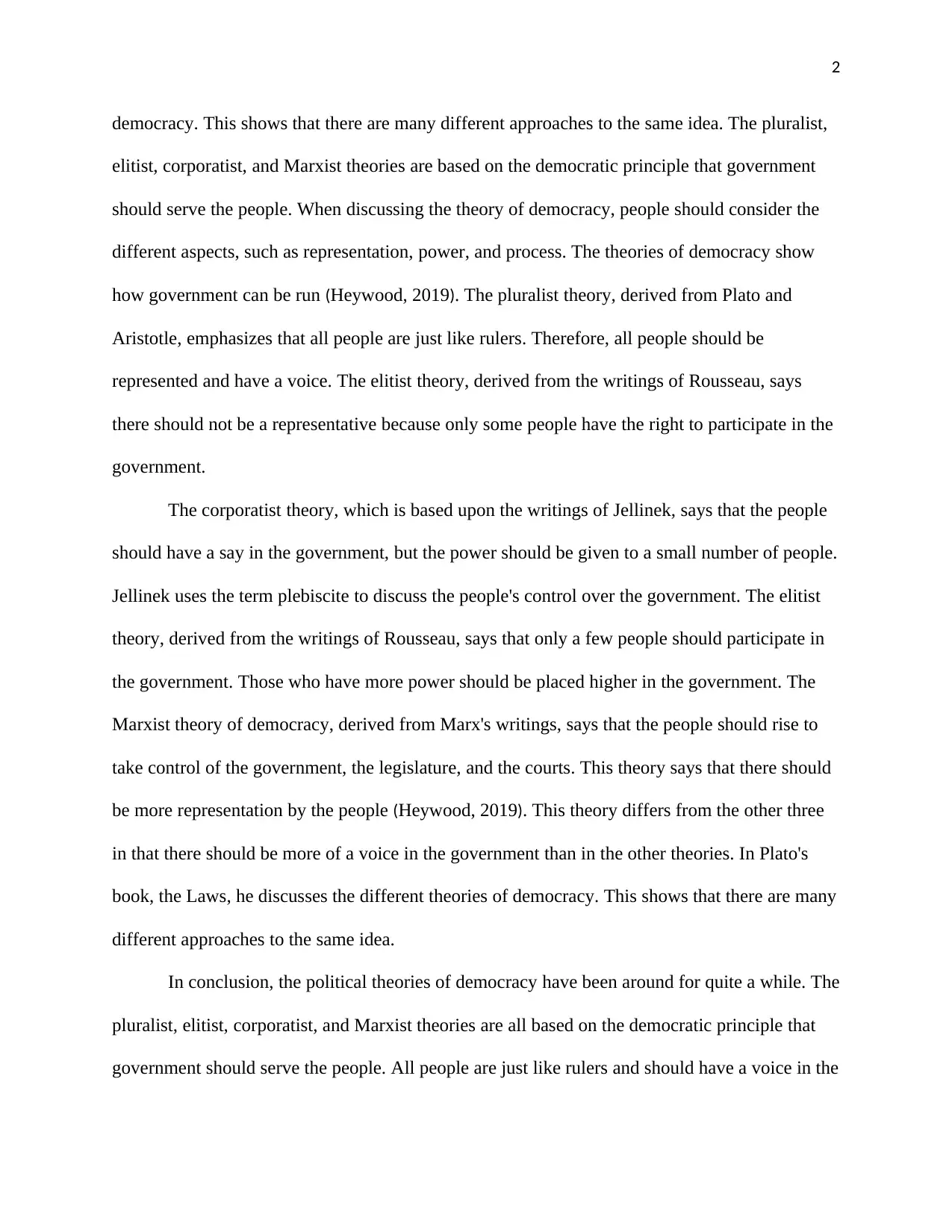Political Theories of Democracy: A Comparative Analysis of Four Types
VerifiedAdded on 2022/09/15
|4
|853
|17
Essay
AI Summary
This essay provides a comparative analysis of four prominent theories of democracy: pluralist, elitist, corporatist, and Marxist. It begins by establishing the common ground shared by the pluralist, elitist, and corporatist theories, which emphasize the principle of government serving the people, and traces their origins to classical Greek philosophers like Plato and Aristotle. The essay then delves into the specific characteristics of each theory, differentiating the elitist theory, which prioritizes the political process over broad representation, the corporatist theory, which advocates for representation of special interest groups, and the Marxist theory, which calls for the working class to take control of the government. The analysis highlights key differences in how each theory approaches representation, power distribution, and the governing process, drawing on the writings of influential thinkers such as Rousseau, Jellinek, and Marx. Ultimately, the essay underscores the enduring relevance of these theories in understanding the complexities of democratic governance and encourages consideration of their varying aspects, including representation, power dynamics, and the overall political process. The essay concludes by reiterating the shared democratic principles underlying the four theories while emphasizing their distinct approaches to achieving those principles.
1 out of 4






![[object Object]](/_next/static/media/star-bottom.7253800d.svg)